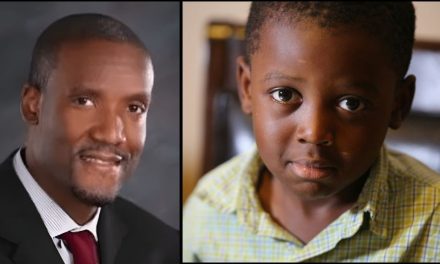By Robert Weiner and Gene Lambey
Special to the AFRO

The people of Haiti are steeped in strong U.S. and Congressional Black Caucus support but are regularly betrayed by the nation’s own leaders. In late April, Haiti’s transitional council appointed Fritz Belizire, who was former President Rene Preval’s sports minister, as the new prime minister. This by no means solves the crisis of gangs running the country. It’s time to turn the tide.
Corruption in Haiti’s government originated from a small rich segment of the population, who hired gangs and mercenaries against their opposition for years. The crisis continues three years after President Jovenel Moise was assassinated in 2021 at his Port-au-Prince home by foreign mercenaries.
Then-Congressman John Conyers (D-Mich.) and Charles Rangel (D-N.Y.), Congressional Black Caucus (CBC) co-founders, close friends of former Haitian President Jean-Bertrand Aristide, confronted chaos in Haiti for decades. They were close to Aristisde and had many meetings with him in Haiti and in the U.S. Congress. Conyers proudly displayed a framed photo in his office of a meeting with President Aristide. The current CBC remains distraught about the latest violence and disarray in their close neighbor country.
Former acting President and Prime Minister Ariel Henry traveled to Kenya on Feb.29, seeking foreign assistance for the increasing gang violence. Over 4,000 inmates broke out of two prisons in Port-au-Prince on March 4 during Henry’s absence. The inmates, members of Haiti’s over 200 heavily armed gangs like Viv Ansmn, G9 and others, caused mayhem in the streets, pillaging, raping women, murdering citizens and seizing control of the airport. It only got worse from there. Upon returning to Haiti from Kenya, the former Prime Minister Henry was unable to land in Port-au-Prince. He was exiled out of his country and traveled to Puerto Rico amid chaos.
Henry was told to step down by the U.S. Secretary of State Antony Blinken and U.S officials, losing U.S support. He officially stepped down on April 24 as the new interim government was formed along with his successor, Fritz Belizire.
The Washington Post reported gun smuggling to Haiti via Miami’s “break-bulk” ports. The U.N. independent expert on human rights, William O. Neill had said there should be more “vigorous enforcement of the arms embargo by everybody,” including the U.S. It’s a U.S. problem. The U.S. Bureau of Alcohol, Tobacco, Firearms and Explosives (ATF) and the Transportation Security Administration (TSA) need to do something.
Gang violence has been surging in Haiti since Moise’s 2021 assassination. In a report from the U.N, almost 5,000 Haitians were killed and almost 2,000 were injured by the end of 2023. Three months into 2024, as of March 22, an estimated 1,554 Haitian citizens have been killed and 826 citizens injured. The current Haitian national police force is at 9,000 and their military is at 2,000.
A Sky News interview with the leader of the gangs, Jimmy “Barbecue” Cherizier on March 29 in Port-au-Prince revealed that he would be open to peace talks without foreign intervention. His gang alliance controls over 80 percent of Port-au-Prince.
Cherizier called for a “ceasefire only if his consortium of armed gangs” were involved in the discussion on the future of Haiti. He would see foreign peacekeeping forces as a threat and would not hesitate to attack. Cherizier’s words of peace should be taken cautiously as he has a history of crimes and rampant killings such as the La Saline massacre in 2018. He was a supporter of the assassinated President Jovenel Moise and the Haitian Tet Kale Party.
Cherizier threatened to incite “civil war” and “genocide” on Port-au-Prince unless Henry stepped down from office, which he did on April 24.
The U.S. secretary of state made a trip to Kingston, Jamaica, on March 11 and announced during the CARICOM meeting that the U.S. would contribute $300 million to a Kenyan-led multinational security mission into Haiti, sending 1,000 soldiers. Blinken added that an additional $33 million would be sent to Haiti for “additional humanitarian assistance.” Blinken proposed a transitional government in Haiti – a step that, apparently being taken – which could only take the country to the next crisis when this one is over if the root causes are not solved.
Several political parties in Haiti are currently fighting over rule since Henry stepped down. Parties like the Haitian Tet Kale Party (PHTK), Democratic Unity Convention, Patriotic Unity, Lavalas Family and Pitit Desalin proposed a transitional council on April 23, which is a nine-member council. Seven of these members have voting power. The members are Smith Agustin, Dr. Louis Gérald Gilles, Fritz Alphonses Jean, Edgard Leblanc Fils, Laurent Saint-Cyr, Emmanuel Vertilaire and Leslie Volitare. The remaining members of the transitional council are Regine Abraham and Frinel Joseph.
Jean-Bertrand Aristide, the close friend to Conyers and Rangel, was the first democratically elected president of Haiti. His terms lasted from February to September 1991, October 1994 to February 1996 and February 2001 to February 2004. The CBC welcomed Aristide with open arms in Washington, D.C., until it was too late to realize who he was—another victim of corruption. He was seen as a threat to the Haitian elitist group due to his popularity with the poor Haitian community as a former pastor, his speeches and his association with Lavalas and the Chimeres gang.
Haiti has demonstrated it can support democracy. After a peaceful exchange of power, President Rene Preval held two successful terms from 1996 to 2001 and 2006 to 2011. Preval was not backed by gangs. He was a leader against all odds, adopting a strategy of tranquility. Aristide’s terms were cut short due to coups in 1991 and 2004. The 1991 coup d’etat was led by ex-Haitian military from the Duvalier eras, resulting in the military disbanding in 1995. The 2004 coup d’etat was led by former rebel leader and former politician Guy Phillipe and former senator of the Pitit Desalin party, Jean-Charles Moise. Aristide was exiled from Haiti in 2004.
During his term in office, Rangel spoke of the coup d’etat back in 2004, saying the U.S. was “just as much a part of this coup d’etat as the rebels, as the looters, or anyone else,” in a statement to ABC. Rangel pushed the Haitian Hemispheric Opportunity through Partnership (HOPE) Program through Congress in 2009 which gave Haiti “significant growth and assistance” with the apparel labor monitoring program along with advocating the Haiti Economic Lift Program bill following the 2010 earthquake.
Just like Rangel, former Congressman Conyers fought for Haiti, continuing to preserve its democracy. During his time in Congress, he pushed a bill in 1992 addressing the Haitian refugees crisis, restoring Haiti’s government, protecting the status of Haitians and calling for the U.S. president to develop facilities for Haitians seeking refuge in the U.S. Conyers was aware of Haiti’s history and believed that Haitians should be able to self-govern their country. In Detroit, he publicly held town halls discussing Haiti’s future.
On March 6 this year, OCHA (the U.N. Office for Humanitarian Affairs) released a report revealing 5.5 million Haitians need humanitarian aid and over 300,000 Haitians are displaced from their homes due to the ongoing violence. Over 50,000 Haitians left, attempting to migrate to South American countries or seeking refuge in the U.S in states like New York and Florida.
Haiti has struggled over two centuries to find stability. Snatching its independence from France in 1804 through Toussaint L’Ouverture and Jean-Jacques Dessalines’ rebellion, Haiti had erratic governance. Haiti shifted from political instability to U.S. appointed leaders, to military rule, to a 30-year dictatorship and now a hanging republic. Problems such as natural disasters, the 2010 earthquake, a high debt from the French, foreign intervention, overwhelming poverty, poor infrastructure, food insecurity and gang affiliations within the political sphere keep Haiti overwhelmed.
White House National Communications Advisor U.S. Admiral John Kirby spoke on Haiti’s situation on March 4: “We urge all actors: Put the people of Haiti first to stop the violence and to make necessary concessions to allow for inclusive governance, free and fair elections, and the restoration of democracy.”
Haiti is a national security issue for the U.S as it is a mere 1,889 miles from its shore. It’s not an option to solve the problem; it’s a mandate for our safety. Haiti’s long history of gang affiliation in government must be resolved. Adopting Preval’s tranquil but firm strategies from his party would alleviate Haiti’s tension. National support has in fact come to Haiti but only at its worst times like the 2010 earthquake.
Now we need humanitarian aid to come first. The UN-backed Kenyan force follows. The people of Haiti are steeped in strong U.S. and CBC support but are regularly betrayed by the nation’s own leaders. It’s time to turn the tide.
Robert Weiner was a spokesman in the Clinton and George W. Bush White Houses. He was communications director of the House Government Operations Committee, and senior aide to Congressional Black Caucus co-founders Congressmen John Conyers and Charles Rangel, as well as Four-Star General/drug czar Barry McCaffrey, Reps. Claude Pepper and Ed Koch, and Sen. Ted Kennedy.
Gene Lambey, is a policy analyst and writer at Robert Weiner Associates and Solution For Change.
The post Commentary – Haiti: A chronology from inside Congress and deep cry for the U.N. and the world to help appeared first on AFRO American Newspapers.










